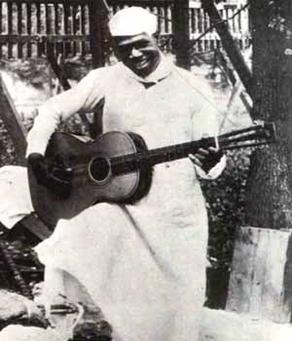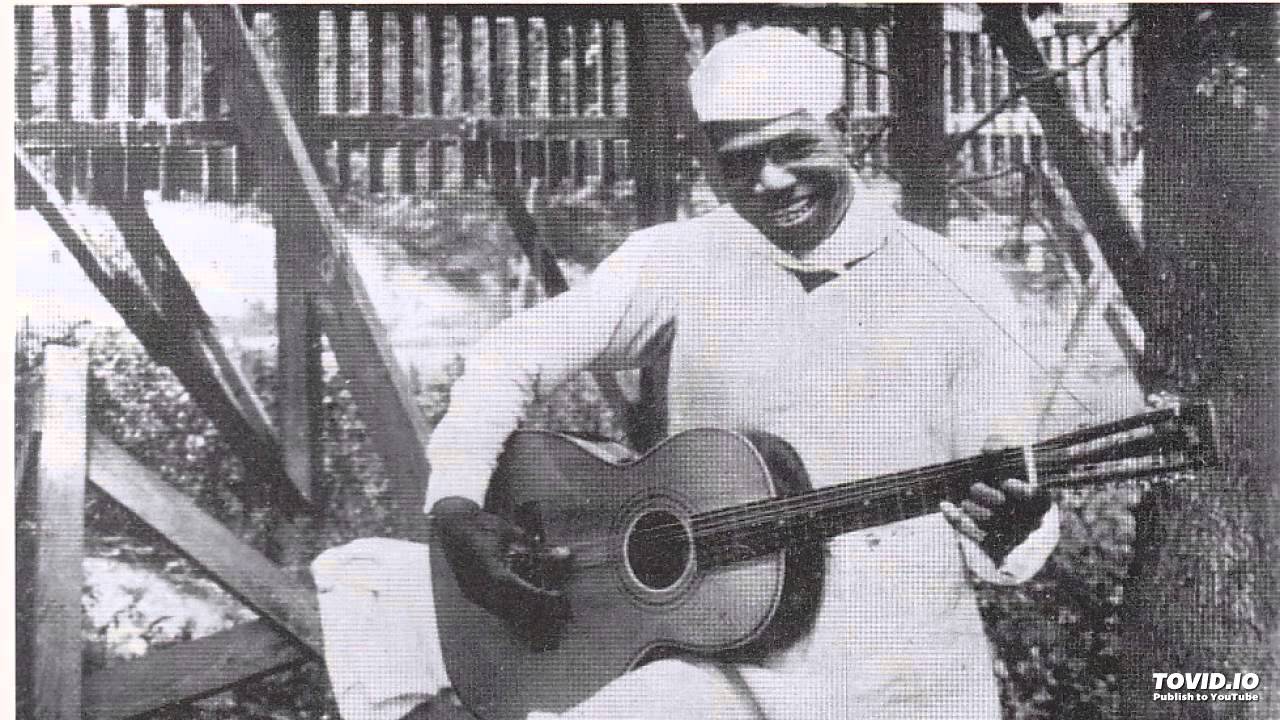Barbecue Bob – A Complete Biography
Introduction
Robert Hicks (September 11, 1902 – October 21, 1931), known professionally as Barbecue Bob, was a defining voice of the Atlanta (Piedmont) country-blues scene. A powerful singer and a distinctive 12-string guitarist, he recorded roughly 65 to 68 songs for Columbia Records between 1927 and 1930 and became one of the label’s top-selling artists of the time. His raw energy, rhythmic playing, and topical lyrics helped shape early blues history before his life was tragically cut short at the age of 29.

Childhood
Robert Hicks was born in Walnut Grove, Georgia, to Charlie and Mary Hicks. The family lived in rural communities east of Atlanta, where Robert developed a love for music at an early age. He grew up alongside future blues musician Curley Weaver, whose mother, Savannah “Dip” Weaver, was a talented local guitarist. She taught guitar to both boys, as well as Robert’s older brother Charlie Hicks, Jr., later known as Charley Lincoln. This early musical environment laid the foundation for Robert’s distinctive sound.
Youth
In his teenage years, Hicks moved to Atlanta, a vibrant hub for blues musicians in the 1920s. Here, he switched from a standard six-string guitar to a 12-string guitar, which became his trademark. To support himself, he worked various jobs, including as a cook at Tidwell’s Barbecue. It was at this restaurant that his singing and playing attracted the attention of Columbia Records scout Dan Hornsby, who not only signed him to the label but also gave him the nickname “Barbecue Bob,” using his culinary job as part of his stage persona.
Adulthood
Hicks recorded his first track, “Barbecue Blues,” in March 1927, marking the start of a prolific recording career. That same year, he traveled to New York City and recorded “Mississippi Heavy Water Blues,” a song inspired by the devastating Great Mississippi Flood of 1927. Over the next few years, he recorded extensively, both solo and with other artists, including his brother Charley Lincoln. In 1930, he formed the studio trio Georgia Cotton Pickers with Curley Weaver and harmonica player Buddy Moss. These sessions captured the rich musical interplay of the Atlanta blues scene.
Major Compositions (Selected Recordings)
- “Barbecue Blues” (1927): His debut record, establishing his unique voice and driving 12-string guitar style.
- “Mississippi Heavy Water Blues” (1927): A moving ballad about the Mississippi River Flood, showcasing his ability to write topical songs.
- “It Won’t Be Long Now,” Parts 1–2 (1927): A lively duet with his brother Charley Lincoln, full of humor and interplay.
- “Motherless Chile Blues” (1927/28): A haunting piece that became a staple of blues revival performances.
- “We Sure Got Hard Times Now” (1930): A commentary on the Great Depression, reflecting the struggles of the era.
- Georgia Cotton Pickers Recordings (1930): Songs such as “Diddle-Da-Diddle” and “She Looks So Good” demonstrated the collaborative spirit of Atlanta’s blues community.
Death
Robert Hicks died on October 21, 1931, in Lithonia, Georgia, from complications of pneumonia and tuberculosis, reportedly worsened by influenza. His sudden death at just 29 years old cut short a promising career, depriving the blues world of one of its most dynamic early voices.
Conclusion
Although his career lasted only four years, Barbecue Bob left behind a powerful musical legacy. His recordings captured the heart of the Atlanta/Piedmont blues tradition, influencing both contemporaries and future generations. His use of the 12-string guitar and his blend of humor, storytelling, and topical songwriting made him one of the most important figures of early blues history. Today, his records remain essential listening for anyone interested in the origins of American blues.

Comments are closed